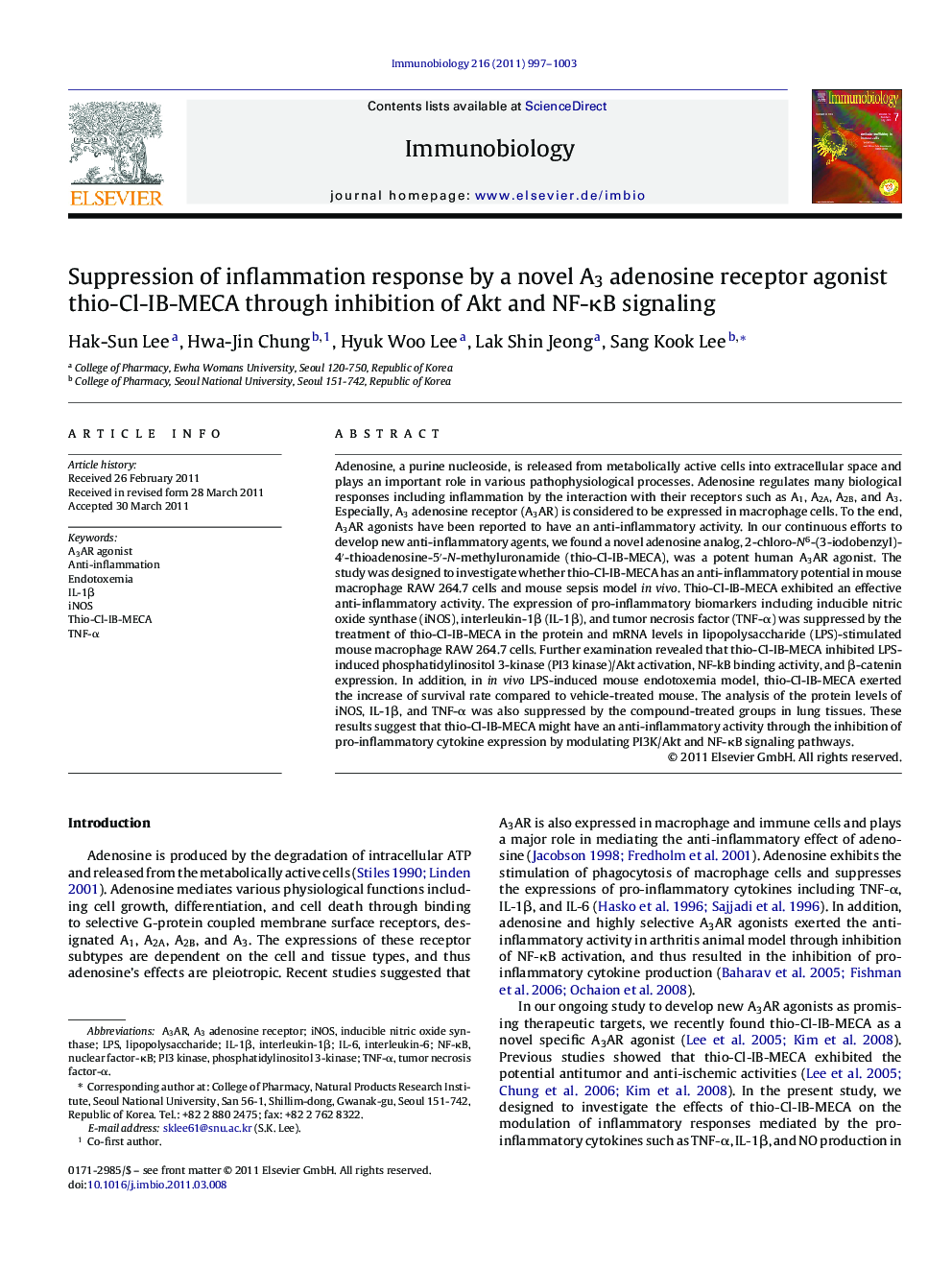| کد مقاله | کد نشریه | سال انتشار | مقاله انگلیسی | نسخه تمام متن |
|---|---|---|---|---|
| 2183275 | 1095560 | 2011 | 7 صفحه PDF | دانلود رایگان |

Adenosine, a purine nucleoside, is released from metabolically active cells into extracellular space and plays an important role in various pathophysiological processes. Adenosine regulates many biological responses including inflammation by the interaction with their receptors such as A1, A2A, A2B, and A3. Especially, A3 adenosine receptor (A3AR) is considered to be expressed in macrophage cells. To the end, A3AR agonists have been reported to have an anti-inflammatory activity. In our continuous efforts to develop new anti-inflammatory agents, we found a novel adenosine analog, 2-chloro-N6-(3-iodobenzyl)-4′-thioadenosine-5′-N-methyluronamide (thio-Cl-IB-MECA), was a potent human A3AR agonist. The study was designed to investigate whether thio-Cl-IB-MECA has an anti-inflammatory potential in mouse macrophage RAW 264.7 cells and mouse sepsis model in vivo. Thio-Cl-IB-MECA exhibited an effective anti-inflammatory activity. The expression of pro-inflammatory biomarkers including inducible nitric oxide synthase (iNOS), interleukin-1β (IL-1β), and tumor necrosis factor (TNF-α) was suppressed by the treatment of thio-Cl-IB-MECA in the protein and mRNA levels in lipopolysaccharide (LPS)-stimulated mouse macrophage RAW 264.7 cells. Further examination revealed that thio-Cl-IB-MECA inhibited LPS-induced phosphatidylinositol 3-kinase (PI3 kinase)/Akt activation, NF-kB binding activity, and β-catenin expression. In addition, in in vivo LPS-induced mouse endotoxemia model, thio-Cl-IB-MECA exerted the increase of survival rate compared to vehicle-treated mouse. The analysis of the protein levels of iNOS, IL-1β, and TNF-α was also suppressed by the compound-treated groups in lung tissues. These results suggest that thio-Cl-IB-MECA might have an anti-inflammatory activity through the inhibition of pro-inflammatory cytokine expression by modulating PI3K/Akt and NF-κB signaling pathways.
Journal: Immunobiology - Volume 216, Issue 9, September 2011, Pages 997–1003